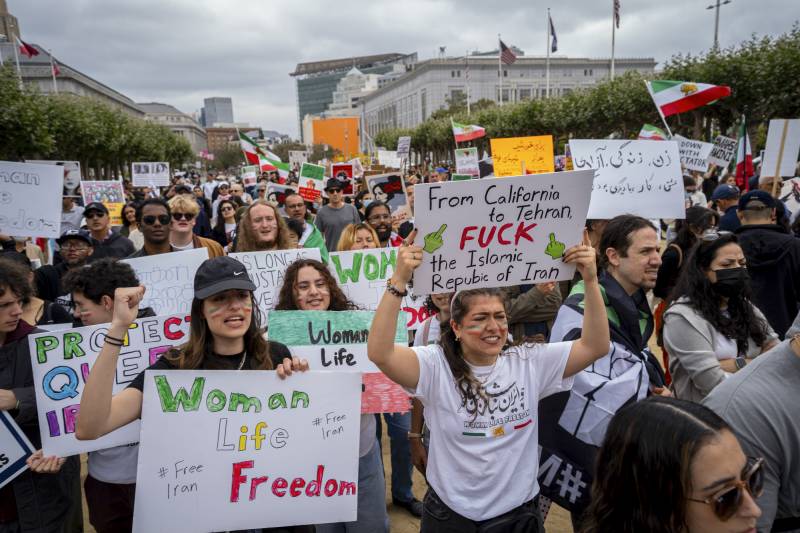Chants of “Women! Life! Freedom!” echoed through the crowd as hundreds of Iranian Americans and allies gathered at San Francisco’s UN Plaza on Saturday to mark one year since 22-year-old Mahsa Amini died after being arrested by Iranian morality police for not properly wearing her hijab.
“This just kind of hits home for me,” said Roya Oreo, who has family in Iran. “I’m here just to support the women in Iran, to support my family in Iran, to support Iran and advocate for freedom.”
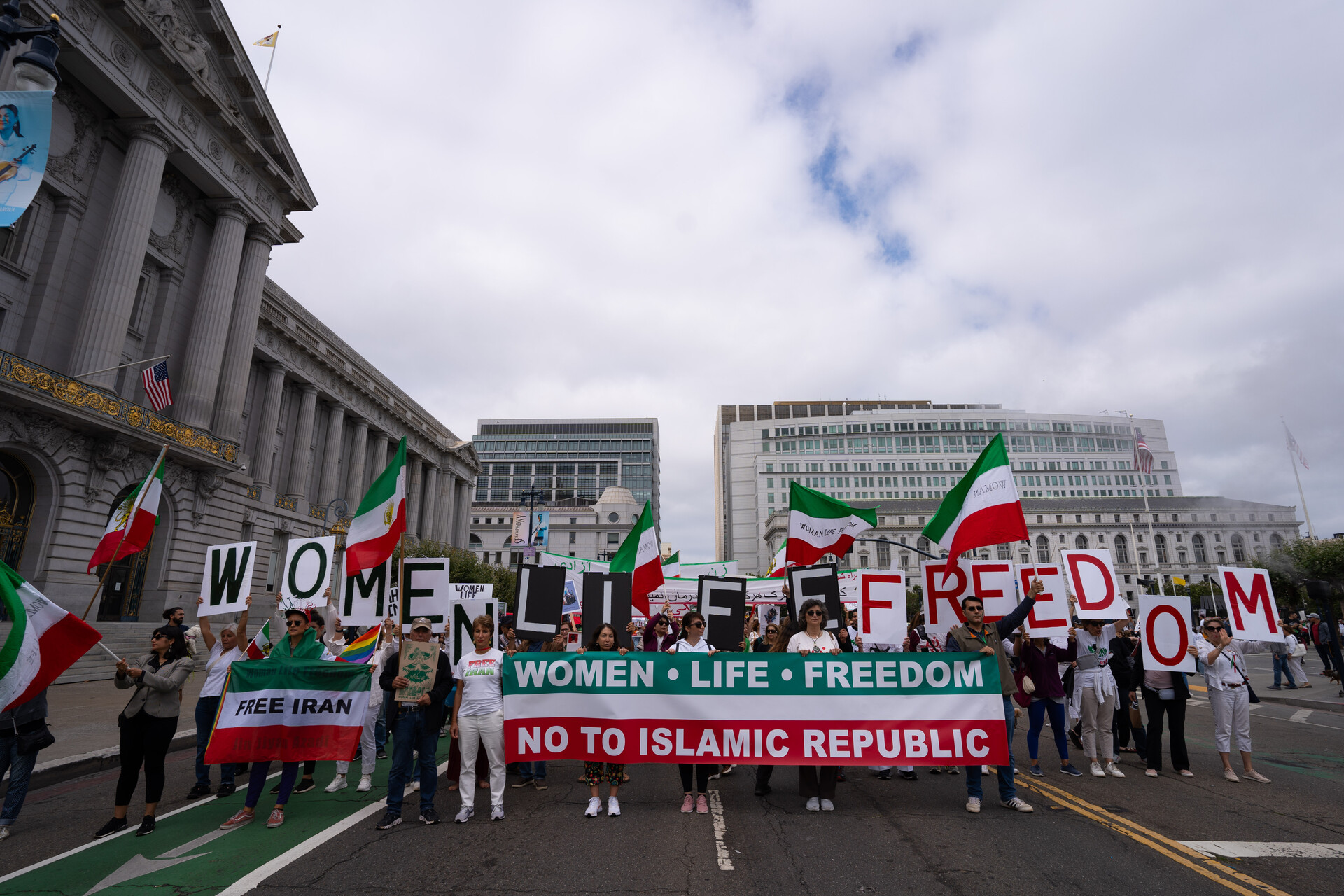
Oreo said she initially felt helpless, and noted that many activists in Iran are her own age.
“Everything that’s happening there could potentially wipe out this whole generation that is trying to make this change,” she said. “They’re losing their lives — but they’re fighting for their freedom.”
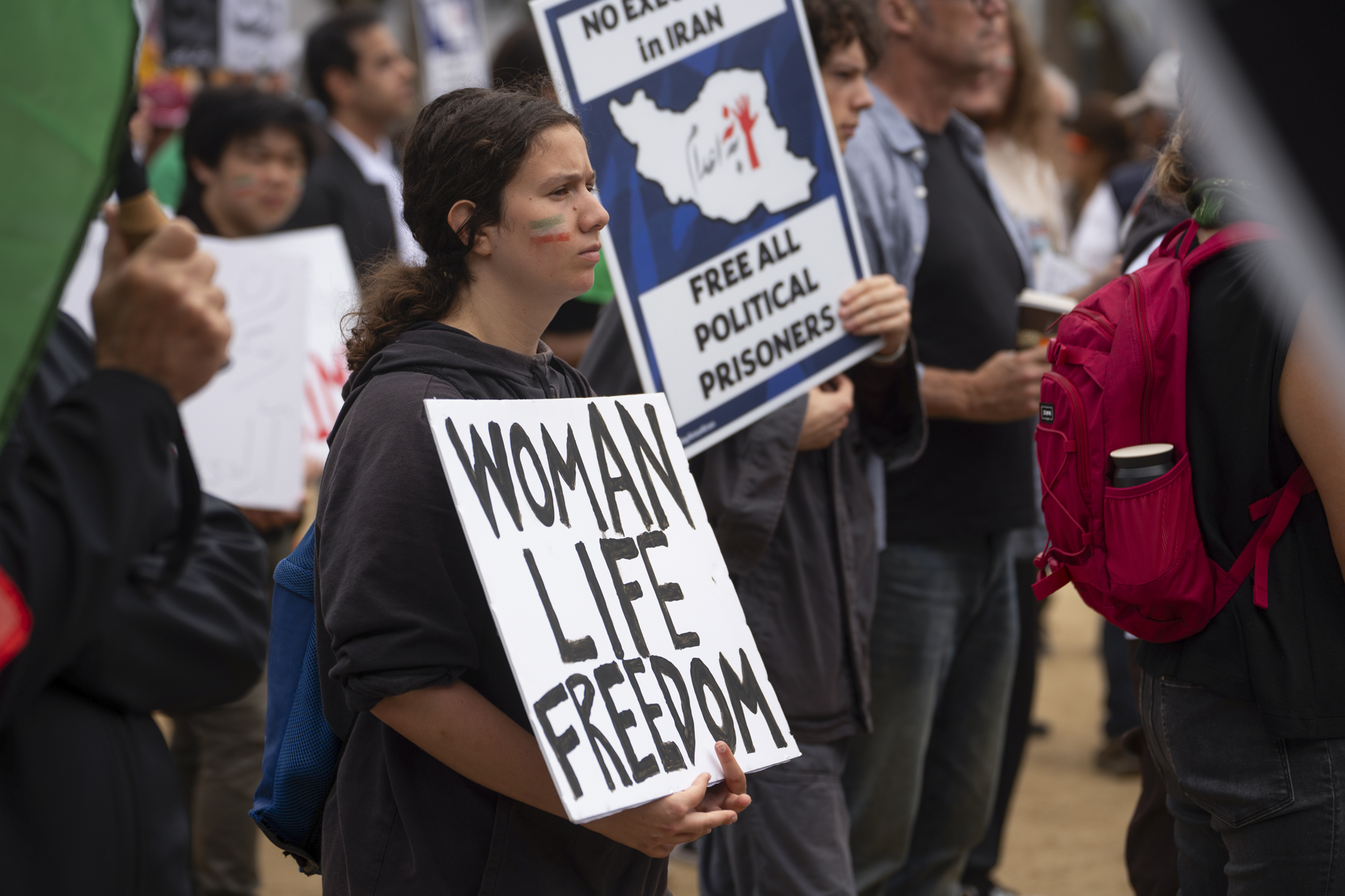
The rally brought together local and international activists and featured speeches by East Bay pediatrician Jaleh Niazi, London-based comedian Chelsea Hart and music by Bay Area artists Parisa Vaaleh, Amir Etemadzadeh and Alex Estrada.
San Francisco Supervisor Ahsha Safaí declared Sept. 16 “Mahsa Amini Day” for San Francisco and added that City Hall will be lit with the tricolors of green, red and white to mark the day.
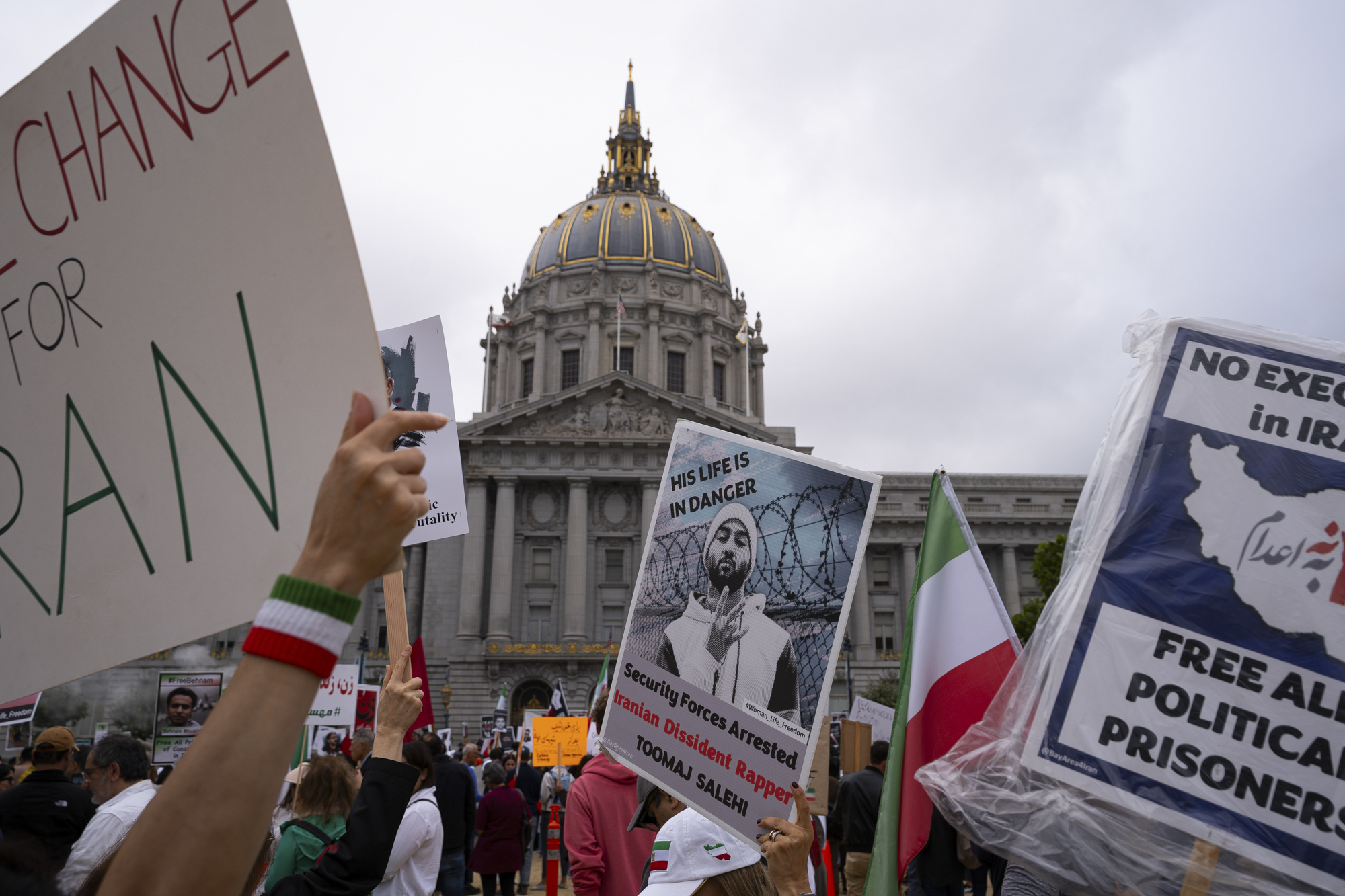
San Francisco’s rally is just one of many happening around the world. In Iran, efforts to quell unrest led to checkpoints and internet disruptions according to The Associated Press.
“Women in Iran have dazzled the world,” Niazi told a crowd of people waving Iranian flags and holding protest signs. “Tens of thousands of women in Iran risk their lives daily by not wearing the hijab.”
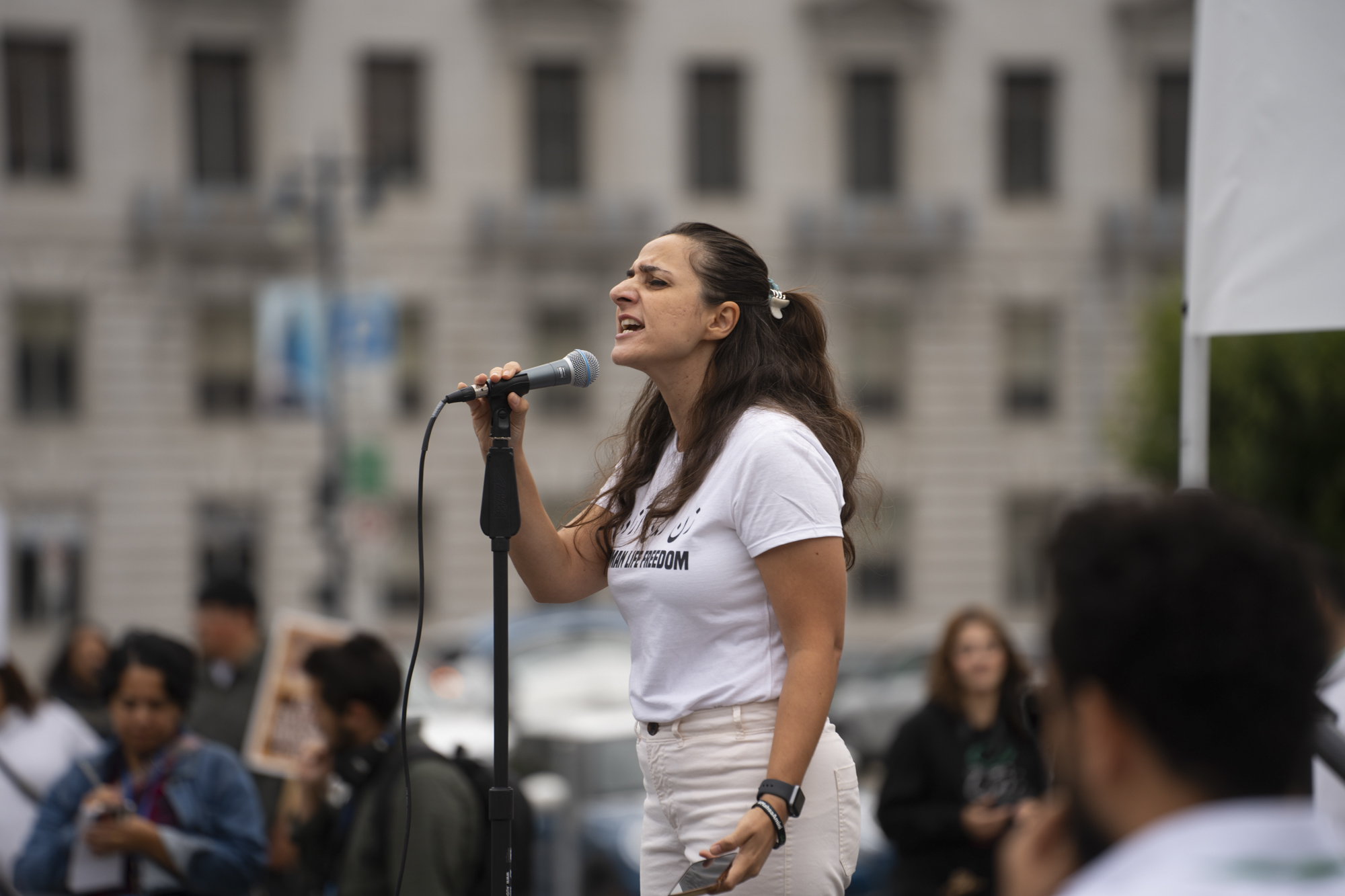
Niazi is a member of Mahsa Medical (Medical Alliance for Health Services Abroad), a group of over 200 volunteer medical professionals offering their services to Iranians in need. “We are seeing and hearing about atrocities that are unimaginable, committed by the government against its own people,” Niazi said.
Since protests began last year The Associated Press reports more than 500 people have been killed and more than 22,000 people detained.
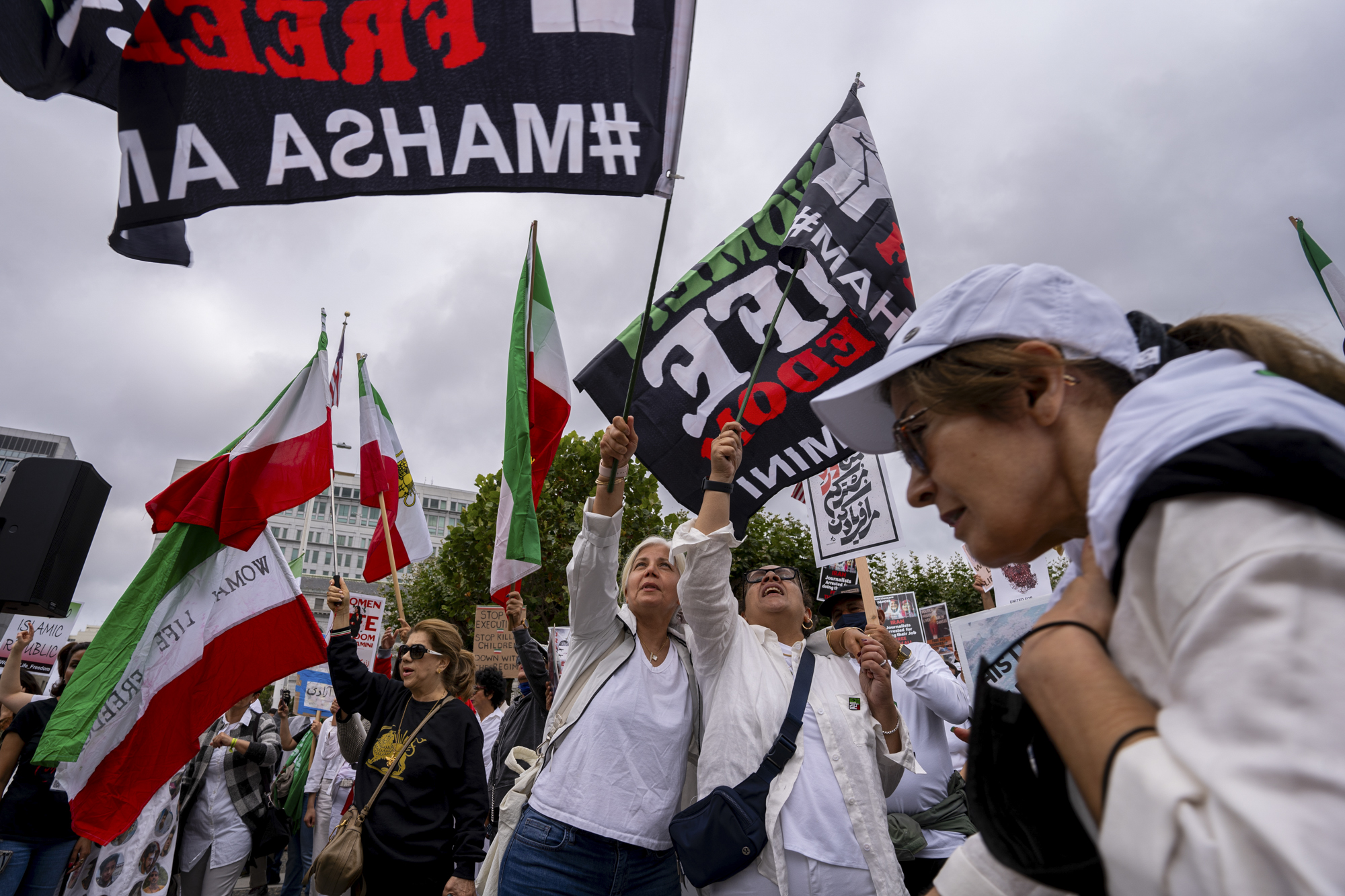
House Resolution 589, also called the MAHSA Act, passed the U.S. House of Representatives on Tuesday.
“It’s the best piece of legislation — U.S. wise — to come out to support sanctions and standing up against the regime’s brutality,” said Arman Mahmoudi, an activist and member of BayArea4Iran. “It’s asking to hold the regime officials accountable [and] asking for religious freedom.”
The legislation must pass the Senate and be signed by President Biden before becoming law.
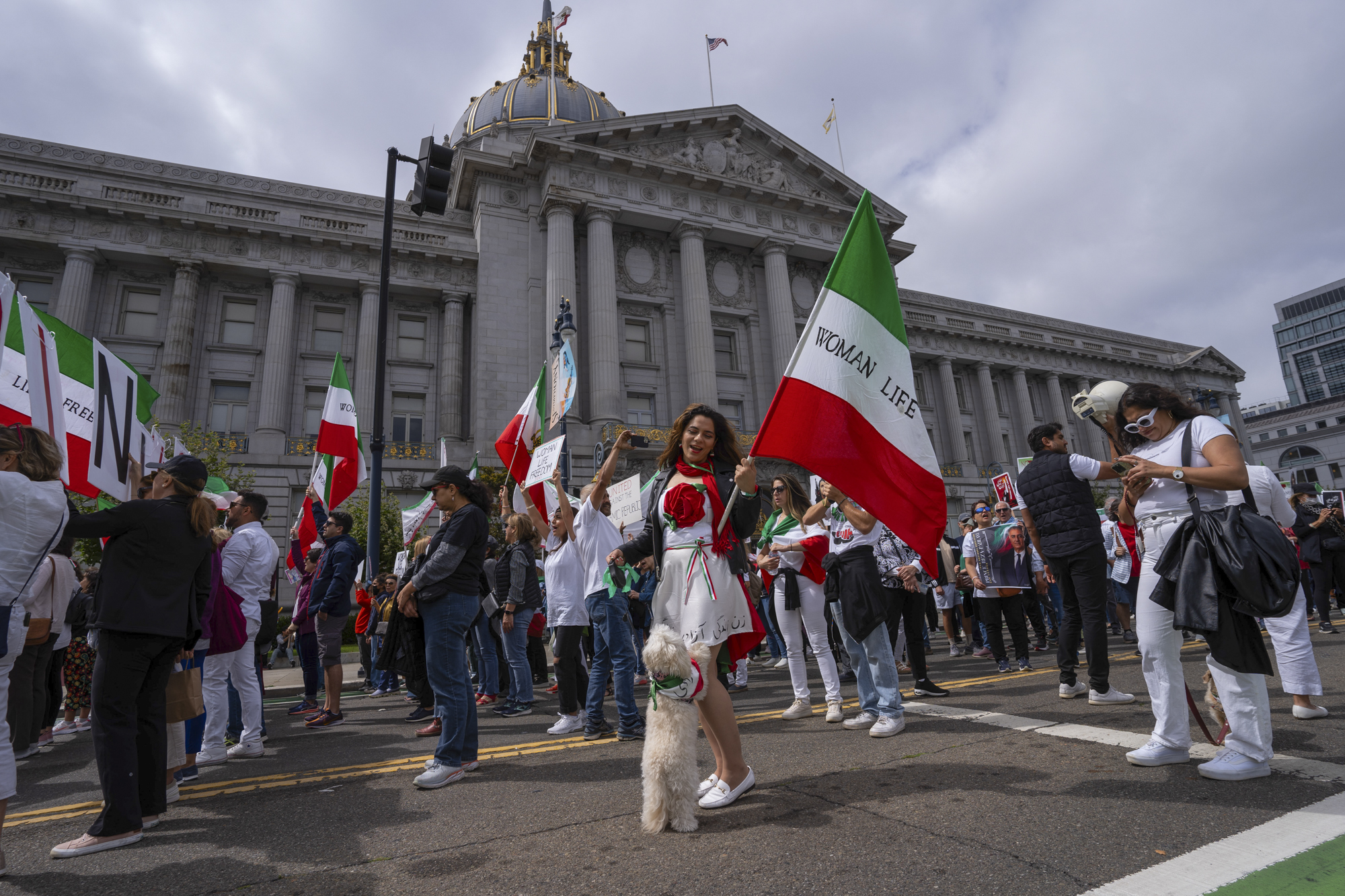
BayArea4Iran has organized 18 rallies, traveled to Washington, D.C. to advocate for the MAHSA Act and mailed more than 6,000 letters to Bay Area congressional representatives, according to the group’s website.
“It’s very minuscule compared to the people risking their lives in Iran,” Mahmoudi said. “The least we can do is take time out of our life to organize and peacefully demonstrate our opposition to the Islamic regime.”
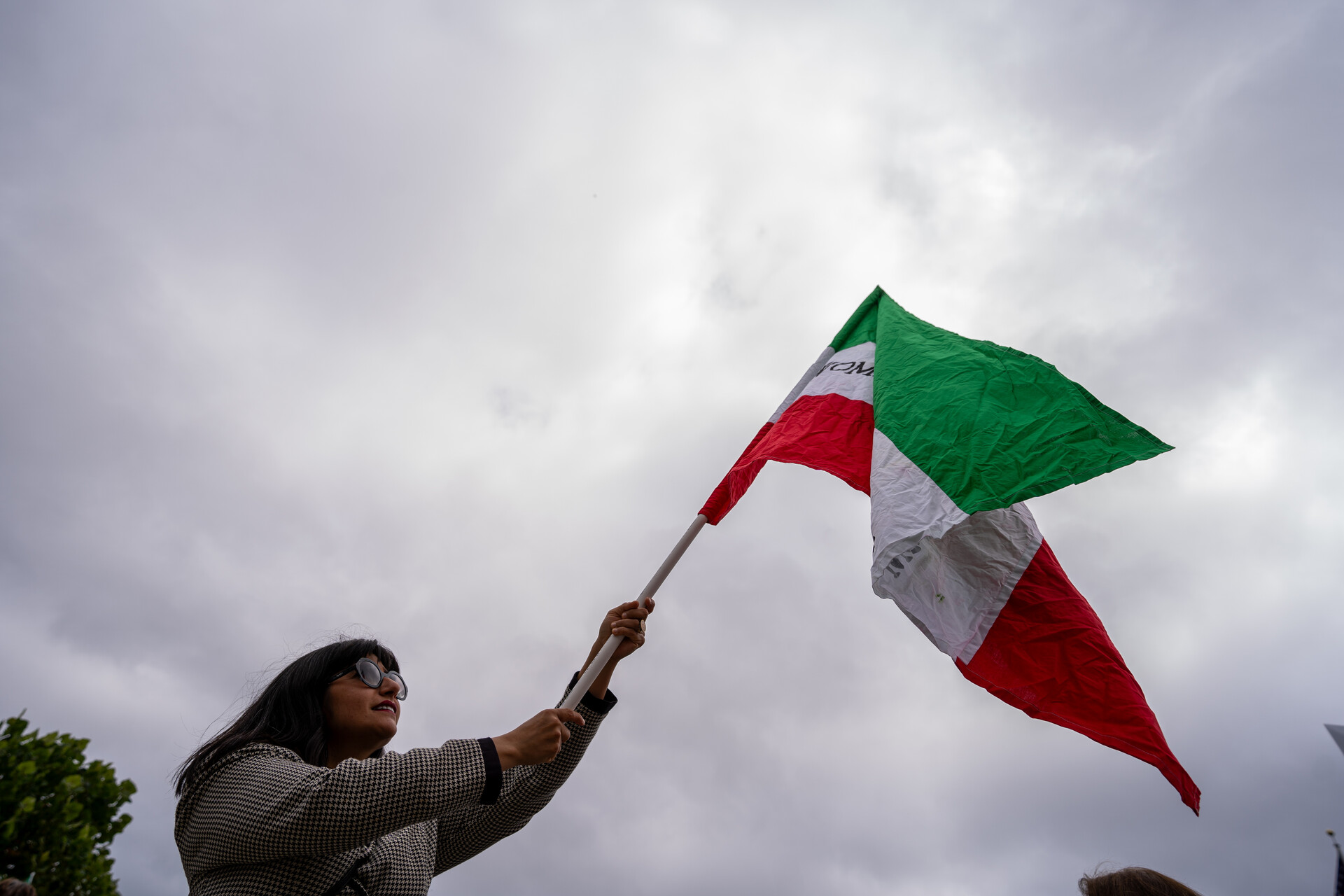
Though Oreo said she still feels “a little hopeless” marking a year since Amini’s death, she’s also proud to see people working to support the people of Iran. Still, she wondered: “How much longer do we have to do this? How many more years are we going to be here?”
When asked if she would be here next year, she said “yes.”
Mahmoudi echoes her sentiment. “I’ll be here as long as this goes on — until we get rid of the government.”
KQED’s Billy Cruz contributed to this report.
